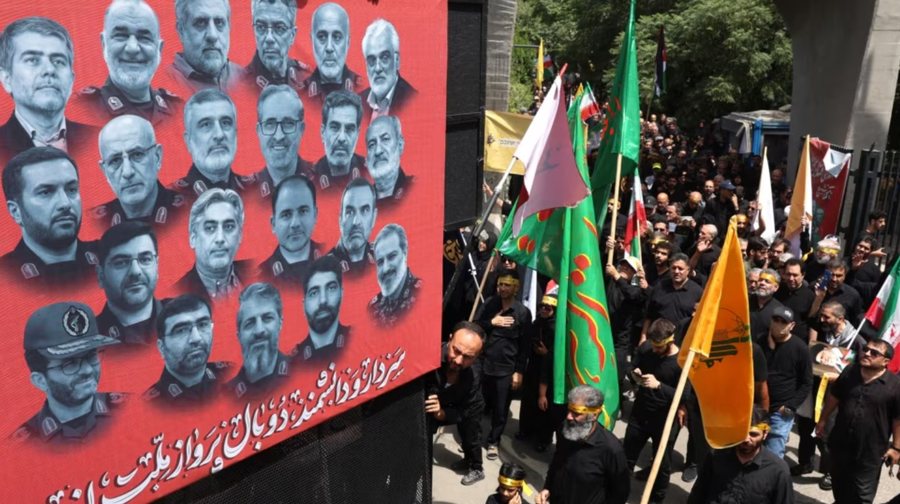Iran arrested 21.000 people during war against Israel in June


Express newspaper
12/08/2025 20:48
Iranian police have announced that they have detained around 21.000 people for suspected security violations during the 12-day war with Israel that took place in June – a figure much higher than previously published official estimates.
Police spokesman Saeed Montazerolmehdi said on August 12 that information received from citizens played an important role in the arrests. It is not known how many of them remain in custody.
Among those detained are 2.774 foreign nationals accused of espionage. Authorities said evidence of suspicious activity was found on their phones, including photographs of military positions and key facilities, as well as transmitted location data. Another 261 people are suspected of espionage, while 172 have been arrested for unauthorized filming.
This announcement contradicts recent statements by the head of the judiciary, Gholam Hossein Mohseni-Ejei, who had reported 2.000 arrests during and after the conflict, stressing that many of them had been released after investigations had found no evidence of espionage or collaboration with Israel.
Human rights organizations have expressed concern about the measures taken against the suspects.
The US-based HRANA news agency has documented hundreds of arrests during the conflict, often against ethnic minorities and activists. The international human rights organization Amnesty International has condemned the increase in executions in Iran since the war, warning of torture, unfair trials and arbitrary killings.
Since late June, Iran has executed at least seven people accused of spying for Israel, including nuclear scientist Rouzbeh Vadi.
Vadi, arrested over a year earlier, was accused of providing sensitive information that aided Israeli operations.
Iranian authorities express concern about the deep penetration of the Israeli intelligence service Mossad, which, according to them, has enabled serious military and intelligence operations inside the country.
In June, parliament passed a law significantly increasing penalties for espionage and collaboration with hostile foreign governments, particularly Israel. Although the Guardian Council rejected the law, a spokesman for the body said that, with some amendments, it could be passed.
